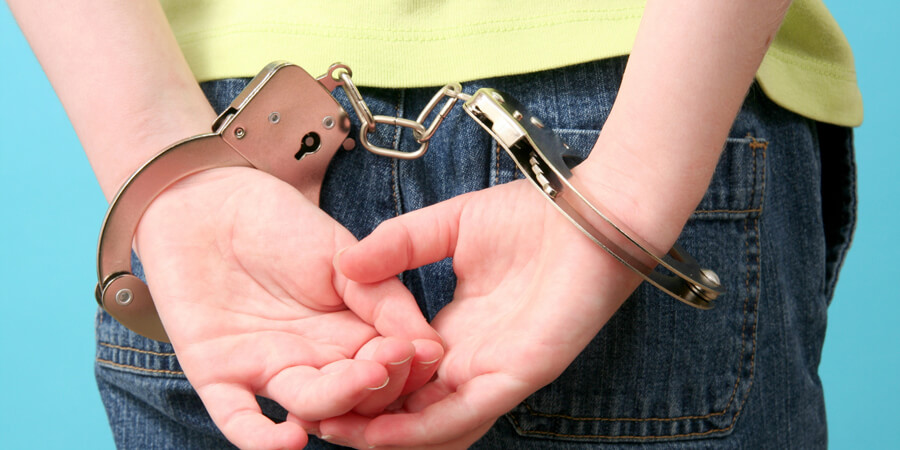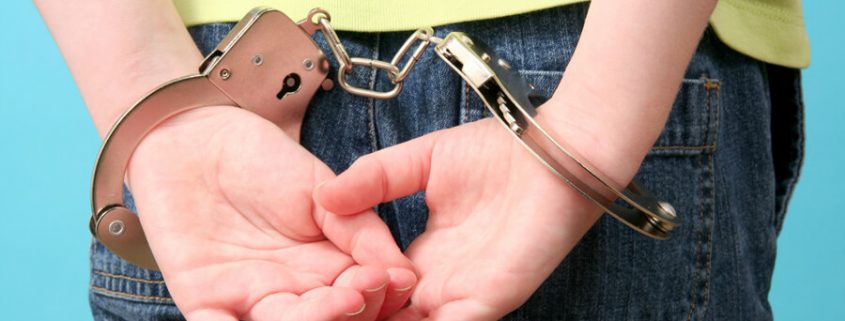Teens Sharing Drugs Can Be Convicted As “Drug Dealers”
Parents beware, your kid could end up in jail.

It’s a situation that happens daily throughout the country. Teens meet after school in local parks, homes or at parties to get high together. Thanks to advances in technology, such as cell phones, the Internet and social media, obtaining illegal substances has never been easier. In fact, many teens report having drugs delivered right to their front door while their parents are home. Others order drugs on the dark web and receive them in the mail.
Before we explore the impact of the law, let’s examine substance abuse use among teenagers.
What Drugs Are Teens Using?
According to Addiction Resource, the United States is the second largest consumer of marijuana in the world. A recent CNN report notes that 24 percent of high school teenagers polled admitted to using marijuana in the last year.
Though marijuana and alcohol remain the dominant drugs used by teens, prescription drugs, which are far more powerful and addictive, are gaining popularity (See “Teen Prescription Med Abuse Skyrockets”). According to The Foundation for a Drug-free World, 90 percent of prescription drug addicts reported that they started using prescription drugs in middle school or high school. This is supported by a National Institute on Drug Abuse report which notes 25 percent of prescription drugs abusers started using prescription drugs before they were 13-years-old.
How Can Teens Afford to Buy Illegal Substances?
Honest Marijuana suggests that the average price for medium quality marijuana is $9-15 a gram, which should produce 1.5 joints. However, vaping and cannabis “oil pens” are gaining in popularity because they’re virtually odor-free and can be quickly hidden, which makes them ideal for smoking in school or other public places.
You can track the current street prices for prescription drugs on StreetRx. Here’s a sample of the going rates for prescription pills in major cities:
- New York: 30 mg pill of Adderall sells for $10.
- Connecticut: 15 mg morphine ER pill sells for $10.
- Nevada: 5 mg of Valium sells $5.
The site notes that Adderall is the most popular street drug.
How Do Teens Get Access to Illegal Substances?
The three most common ways teenagers obtain drugs are:
- They pool their money to buy drugs.
- A teen with access to drugs uses, sells, or shares them.
- Prescription drugs are stolen or taken from parents’/grandparents’ medicine cabinets.
Now that we’ve covered the cost of and how teenagers get illegal substances, let’s look at how new drug laws make these situations particularly perilous for all those involved.
Drug Laws
If your child shares drugs with a friend, regardless of how the drugs were obtained, they can be charged as a drug dealer, even if they just give the drugs away.
What’s more, if an accidental overdose occurs, as a result, homicide charges can be brought against the teen who distributed the drug. Teenagers no longer have to be selling drugs to be charged and held responsible.
According to a report by the New York Times, Not a Drug Dealer? Here’s Why the Law Might Say Otherwise charges in overdose cases can be brought against nearly anyone who was a party to the crime, including victim’s friends, siblings, or parents. For example, the report notes a 17-year-old and two classmates who faced murder charges after the LSD they gave to a friend resulted in a fatal overdose. It also mentions a 21-year-old in Minnesota who was sentenced to over 9 years in prison after his best friend fatally overdosed as a result of a drug he shares with him at a party.
Unfortunately, the National Institute on Drug Abuse for Teens reports that teen overdose deaths are increasing, which means harsh punishments are likely to increase and become more frequent. According to another NY Times report, They Shared Drugs. Someone Died. That Makes Them Killers?, the number of prosecutions in accidental overdose deaths has almost doubled between 2015 and 2017, totaling more than 1000 cases in 36 states with charges from manslaughter to first-degree murder.
If you’re a parent of a teen that is using or sharing drugs, here are five steps you can take today:
1. Share this information.
Open a dialogue with your child about drug sharing and the new legal consequences.
2. Involve Others
Get a family member or friend with recovery experience to speak with your kids.
3. Talk to School Officials
Visit your kid’s principal or guidance counselor and discuss starting a drug awareness program in your kid’s school.
4. Find a Teen Drug Prevention Program
Talk to your local law enforcement and find out what drug prevention organizations are available in your area.
5. Drug Test Your Kid
Consider adding a drug test to your child’s annual physical. You can buy a home kit or have your doctor perform the test.



